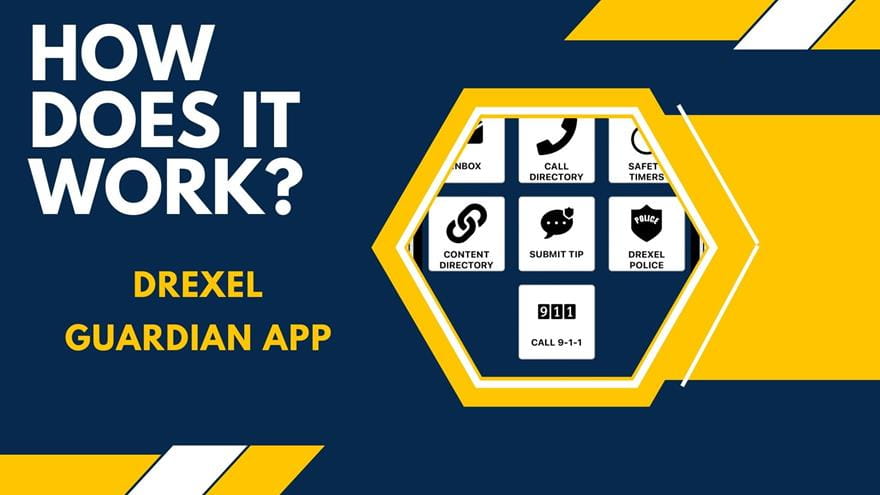Q&A with Procurement's Stephen Mack
 By Frank Otto
By Frank Otto
“Open that door and let’s get Bo in here and tell you what he sold,” Stephen Mack said with a friendly smile, gesturing toward his office door.
Bo Solomon, director of Disbursement and Surplus Services within Procurement Services, the department Mack heads as associate vice president, stepped through the door. Although he just started at Drexel in December and Mack roughly a year before him, the two are old colleagues who worked together in the University of Missouri system.
Solomon heads Procurement Services’ Surplus Exchange program, which allows offices, departments, schools and colleges to offer up for sale equipment, supplies or other items they don’t need.
“People are always asking me what’s the weirdest thing I’ve sold,” Solomon explained as he placed two sheets of past sales on the table.
One sheet is for a Mongolian yurt. The Academy of Natural Sciences bought it roughly 30 years ago for $3,000.
Solomon found a buyer for $4,500, meaning the Academy actually made a profit of $1,500 after three decades of use.
The other paper was for a piece of Drexel’s old basketball court, containing a Dragon logo. Solomon sold it for $490.
In all, Procurement has racked up $120,000 for the University’s bottom line since January, when the program really got started. That accounts not just for profits from sales but also avoiding the cost of disposing items, which can be in the thousands of dollars.
“We’ve been really going to town,” Mack said.
On top of that, Mack knows there’s a possibility for much, much more. In the Missouri system, they were making $500,000 a year on surplus.
“We’re just barely scratching the surface of the possibilities of this,” said Mack.
That’s what Mack is good at. It’s why he’s been the head of procurement for a host of universities. Since 1982, in addition to the Missouri system, he’s worked at Brigham Young University, the University of Oklahoma and the University of Arizona.
Mack’s value comes from something he learned at the very outset of his career as a junior buyer for the Church of Jesus Christ of Latter-Day Saints: procurement isn’t just about getting things; it’s about the bottom line.
And that’s what Mack is doing for Drexel, turning a department that traditionally has money flowing out of it into one that saves and even makes some money.
Mack sat down with Drexel Quarterly to talk about his mission for the University.
Q: What are you trying to do in Procurement Services here at Drexel?
A: Somewhere early in my career it became kind of my specialty to come in, reform and transform, procurement from what has been its traditional role in higher education, which is usually gatekeeping and just part of the bureaucratic transaction process.
Higher education has more recently understood the significance of the bottom line, what procurement can bring to an institution. Outside industry has realized this for a long time.
In procurement, every dollar that we save goes to the bottom line.
As institutions have realized that, in many cases they have wanted to transform their procurement operations from one that basically processed paper into one that could become more strategic and capture these significant opportunities for savings.
Q: What is the biggest challenge in higher education when you come in and try to reform procurement?
A: Cultural change is the most significant challenge.
Universities are, by nature, decentralized. From the budgeting methods to just the whole structure of education, it’s a decentralized kind of thought process. Really, it’s like a hundred different entities making individual purchasing decisions. Many times, there’s no cohesive strategy as to how purchasing is done.
It’s also a challenge when you’re taking a department like Procurement that has been brought up and valued for years for doing one thing and now you’re telling them that still remains part of their job but it’s a smaller part of what your value is and now we need you to do this.
This is also a challenge: Getting the people you have to adopt new skills or transition the people that have the skills you need to drive a strategic sourcing operation.
Q: How has it been trying to make change at Drexel, so far?
A: I think Drexel has a really unique culture in that they’re like other universities in many ways but there is a willingness to give new ideas a try that I have not experienced at other universities.
Getting people to listen to the new ideas is half the battle. John Fry is the most dynamic president I’ve ever worked with. He understands the academic and the business side and works them both so well.
So there’s this openness to new ideas I haven’t always had. People are willing to listen, and that’s half the battle. Some of the other places I’ve been, you never won that battle because you couldn’t get people to even listen.
Here, if you can build a business case for something, you can get change implemented.
Q: When you hear “Procurement,” a lot of people think about dollars going out. But you’re thinking in terms of bringing dollars back in, right?
A: The value of procurement in a strategic operation is where you can improve the efficiencies of the process by which you purchase. So there are substantial opportunities for reducing costs involved with the process itself by streamlining it. That’s the value procurement brings. We can improve the value of products by how we get them.
The other value is either generating savings through cost reduction or creating revenue through surplus. That’s all new revenue.
There’s also revenue in getting companies to invest sponsorship or marketing dollars as opposed to not just getting a great price from them. What else can you offer and include in packages that say, ‘We’re going to do business, but in the course of business, you’ll invest in us?’
Surplus is one where we had no process in place. We’ve had numerous experiences where we were paying thousands of dollars just to have companies come and get rid of stuff. So we weren’t getting anything for it.
In his time here, Bo [Solomon] has eliminated thousands and thousands of dollars of having us pay for someone coming to remove things. We just sold a tractor for thousands over what they thought it would have been valued because he has that expertise to know how and where to sell certain things.
Q: It’s a little like Antiques Roadshow, in a way.
A: Yeah, he just knows how to do it. He knows where to go. We have some sites we use, like GovDeals, where we put equipment on and it becomes a sort of national bidding site, like eBay for higher education equipment and it really is effective.
Q: In addition to increasing efficiency, what does your department do to help engage the community around Drexel?
A: A responsibility of ours is diversity and the onboarding process for identifying and getting diverse companies; expanding our footprint in West Philadelphia, specifically.
We hired a director where that’s one of her main tasks. She goes out in the community and identifies companies that are in West Philadelphia that could do business with us, and then marries them with the right part of the University, whether that’s Procurement so they could do a bid or, in some cases, what we actively do is try to create partnerships.
I’ll give some examples.
We’re in the process right now of finishing up on a bid for laundry service. The two companies that are competing for that are West Philadelphia companies.
Another one is we went out and identified a small, minority-owned company that did digital printing: Replica Creative. At the same time, we were investigating a major company out of Syracuse, New York, that had real technical and high-end capabilities.
We introduced them to each other and helped them form a partnership, and now all the business cards and stationery are being produced first here, through Replica Creative, a West Philadelphia company, with the power behind the scenes of this major company in Syracuse. And now that money is flowing through a West Philadelphia business.
Q: What’s the next step for Procurement at Drexel?
A: So far, we have completely revamped policies associated with procurement and centralized the ability to obligate the University. We’ve completely created a whole new organizational structure, new job descriptions and new responsibilities. We’ve consolidated Accounts Payable with Procurement, so all of the supply chain is under one management structure.
And we also have implemented Smart Source, which is a tool to automate the purchasing process, to build workflows into it. We are trying to receive our requests electronically, transmit our purchase orders electronically, receive our invoices electronically and settle electronically.
This is still evolving, we have the software in place, now we’re trying to make sure the software is working the way we need and want it to.
And the other thing we’re working on is building strategies for identifying and capturing substantial savings.
Instead of just reacting to the things people need, we want to take a much more proactive approach in looking at, “What are we buying? What are we buying a lot of? Can we consolidate and standardize some of the things we do? Can we move from 30 vendors down to two or three vendors?”
Q: You said earlier that you moved from place to place transforming procurement. Is Drexel someplace you can envision sticking around?
A: This will be my last place. My job here is to get us up and running, operating efficiently and sailing along into the future.
I’m getting toward the end of my career. My next vision is for retirement and sitting on a golf course somewhere. That’s my next challenge.
This piece first appeared in Drexel Quarterly's Fall 2015 issue.
Drexel News is produced by
University Marketing and Communications.
